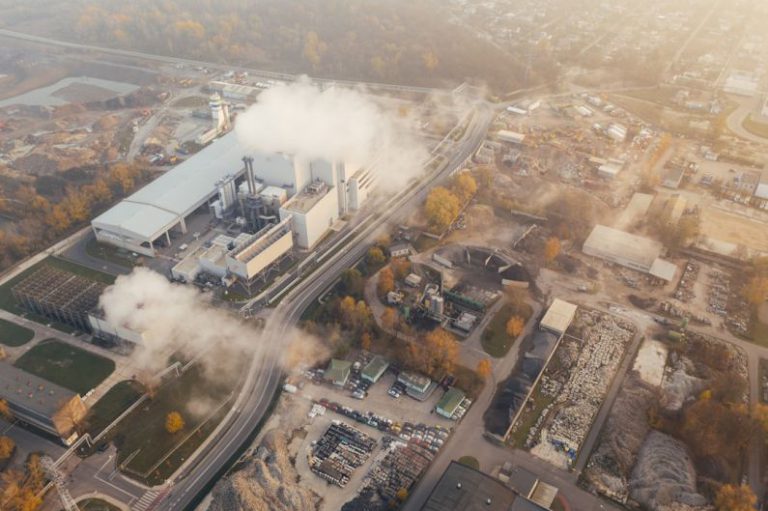How to Save Energy with Smart Home Solutions?
In today’s world, where energy conservation is a growing concern, smart home solutions have emerged as a practical and efficient way to save energy. These innovative technologies offer homeowners the ability to monitor and control their energy usage in real-time, leading to significant savings on utility bills while also contributing to a more sustainable environment. By incorporating smart home devices and systems into your living space, you can easily optimize your energy consumption and reduce your carbon footprint. Let’s delve into how you can save energy with smart home solutions.
Smart Thermostats for Efficient Heating and Cooling
One of the most impactful ways to save energy in your home is by using a smart thermostat. These devices allow you to create customized heating and cooling schedules based on your daily routines and preferences. By automatically adjusting the temperature when you are away or asleep, smart thermostats can help you reduce energy waste and lower your heating and cooling costs. Additionally, many smart thermostats offer features such as remote access and energy usage reports, giving you full control over your home’s climate and energy consumption.
Lighting Automation for Energy-Efficient Illumination
Another key component of a smart home energy-saving strategy is lighting automation. By installing smart light bulbs and switches, you can easily program your lights to turn on and off at specific times or in response to motion sensors. This not only enhances the security of your home but also helps you avoid unnecessary energy usage. Furthermore, smart lighting systems often come with dimming capabilities and color-changing options, allowing you to create the perfect ambiance while still conserving energy.
Energy Monitoring Systems for Real-Time Insights
To truly understand and optimize your energy usage, consider investing in an energy monitoring system for your home. These devices provide real-time insights into your energy consumption, allowing you to identify areas where you can make adjustments to save energy. By tracking your electricity usage, you can pinpoint energy-intensive appliances and behaviors, enabling you to take proactive steps to reduce waste and save money on your utility bills. Some energy monitoring systems even offer recommendations on how to improve your energy efficiency based on your usage patterns.
Smart Appliances for Enhanced Efficiency
Replacing old, energy-guzzling appliances with smart, energy-efficient models can significantly reduce your household’s energy consumption. Smart appliances, such as refrigerators, washers, dryers, and dishwashers, are designed to optimize energy usage and minimize waste. Many smart appliances are equipped with features like energy-saving modes, delayed start options, and remote control capabilities, allowing you to maximize efficiency while minimizing your environmental impact. By upgrading to smart appliances, you can enjoy the convenience of modern technology while reducing your carbon footprint.
Renewable Energy Integration for Sustainable Power
For homeowners looking to further reduce their reliance on traditional energy sources, integrating renewable energy systems into their smart home setup is a compelling option. Solar panels, wind turbines, and geothermal heating systems can generate clean, sustainable power for your home, reducing your dependence on fossil fuels and lowering your electricity bills. When combined with smart home solutions, renewable energy systems can be seamlessly integrated into your home’s energy management strategy, allowing you to maximize your energy savings and environmental benefits.
Innovative Battery Storage for Energy Resilience
To enhance the efficiency and resilience of your smart home energy system, consider incorporating innovative battery storage solutions. Battery storage systems allow you to store excess energy generated by renewable sources or during off-peak hours, which can be used during peak demand periods or power outages. By storing and utilizing energy more efficiently, you can further reduce your reliance on the grid and take control of your energy consumption. Additionally, battery storage systems can help you save money by avoiding peak electricity rates and increasing the overall reliability of your home’s energy supply.
Smart Home Integration for Seamless Energy Management
To truly optimize your energy savings and efficiency, consider integrating all your smart home devices and systems into a centralized platform. Smart home hubs and controllers allow you to control and monitor all your connected devices from a single interface, making it easier to manage your energy consumption and automate energy-saving routines. By creating a cohesive smart home ecosystem, you can maximize the benefits of each individual device and ensure that your energy-saving efforts are coordinated and effective.
Evolving Technologies for Continued Energy Savings
As technology continues to advance, the possibilities for saving energy with smart home solutions are constantly expanding. From artificial intelligence-driven energy management systems to innovative IoT devices that can automate energy-saving actions, the future of smart home energy efficiency looks promising. By staying informed about the latest developments in smart home technology and continuously updating your energy-saving strategies, you can ensure that your home remains at the forefront of energy efficiency and sustainability.
Incorporating smart home solutions into your household is not only a smart investment in your energy savings but also a proactive step towards a more sustainable future. By leveraging the power of technology to monitor, control, and optimize your energy usage, you can significantly reduce your environmental impact while enjoying the added convenience and comfort of a smart home. Start implementing these energy-saving strategies today and make your home a beacon of efficiency and sustainability in your community.






